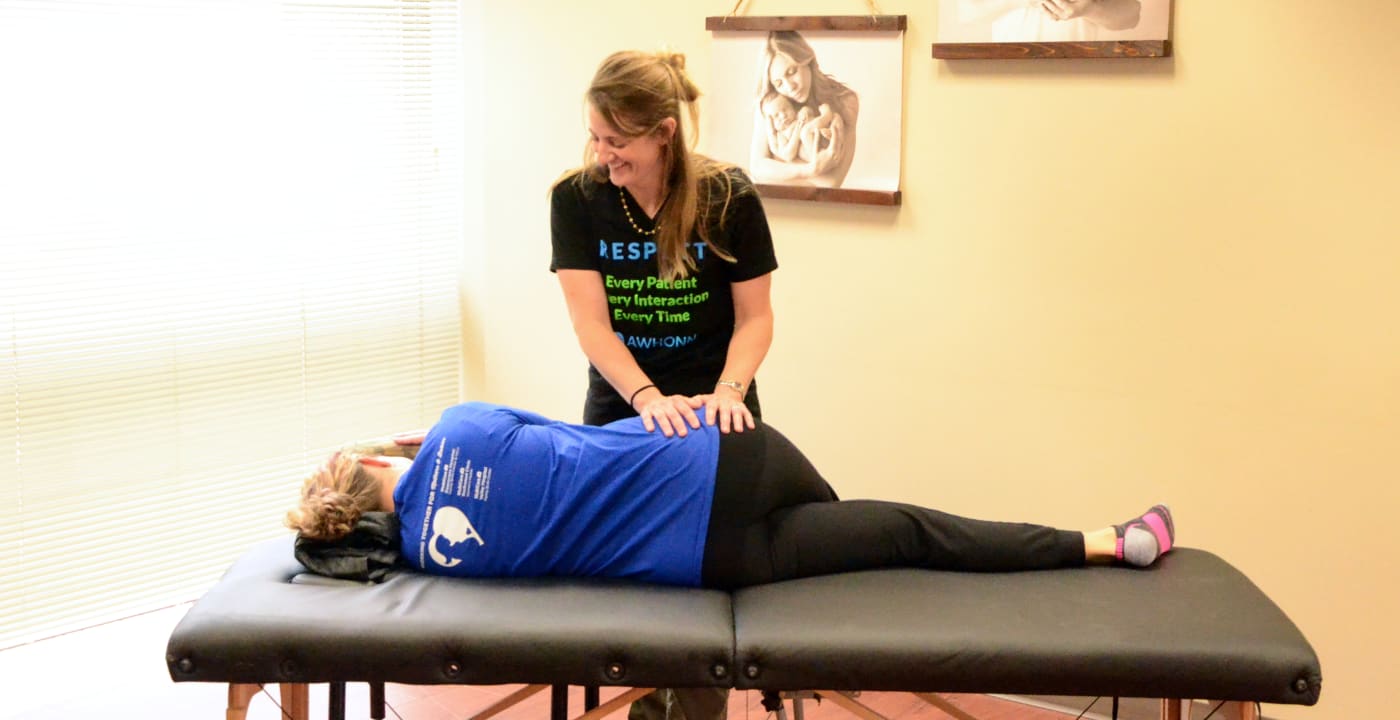Empowering parents and finding comfort in labor through Spinning Babies®

Spinning Babies® doesn’t sound like your typical childbirth class. But then again, it isn’t.
The methodology focuses on a physiological approach to caring for the body in pregnancy and preparing for birth, explains Laura Kaiser, RN, BSN, C-EFM, with the MultiCare Deaconess Hospital Family Birth Center.
Kaiser, a Spinning Babies® Certified Parent Educator, says traditional childbirth classes focus on the birth process, preparing for the hospital and possible interventions, while Spinning Babies® instead centers on becoming familiar with the body and how to support what it’s naturally meant to do.
“In childbirth, the baby spins through the pelvis like a key turning through a lock,” she says. “This approach helps empower parents to take action early, throughout the whole pregnancy and in labor to help find movement and flexibility in the pelvis and bring ease and comfort in that process.”
Spinning Babies® methods are meant to be used no matter where you’re birthing — home, hospital, in a car or wherever, she adds.
Kaiser, who’s been a nurse at Deaconess for nearly four years, is taking her prior experience as an art and health sciences teacher into her new role as a childbirth class instructor.
“Somewhere along my labor and delivery journey, I became very passionate about physiological birth and helping parents move and position themselves to help the baby descend,” she says. “I saw firsthand how I could do a maneuver that would result in a huge change in what the baby was doing.”
While the Inland Northwest is home to a couple Spinning Babies® Certified Parent Educators, Kaiser will be the only hospital-based instructor, bringing more options to expectant parents looking for a different approach in their pregnancy journey.
The one-time, three-hour class begins with a deeper understanding of pelvic and birth anatomy, how it flexes and connects with the body, she says. It then dives into actionable insights, including:
- Daily activities to keep the muscles and ligaments supple. Many are rooted in yoga, such as calf stretches, squats, hip openers and windmills. All the moves are pretty basic, Kaiser explains, but are key to proper alignment and teaching mothers to use the right muscles.
- Three BalancesSM, which emphasizes balance in the body and pelvis to relieve areas that may be too tight, loose or twisty to achieve consistent comfort in pregnancy and ease in childbirth.
- Resting smart by focusing on alignment, whether lying down, sitting at a desk or sitting on the couch. The key to resting smart, Kaiser says, is to rest in positions in which there is less stress on the joints and body from the effects of gravity.
At the end of the day, though, Kaiser says the Spinning Babies® class is about empowering parents and giving them the skills and confidence to positively impact their experience.
MultiCare childbirth classes promote shared decision-making between parents and providers, as well as teach parents to follow BRAIN (benefits, risks, alternatives, intuition, no/not now/need more time), which helps them use their voice. Spinning Babies® expands on that by asking parents to take charge earlier in pregnancy.
“Spinning Babies® teaches parents how to sense their baby and their own bodies so they can take action without a health care provider having to come in the room and tell them ‘You need to do this,’” Kaiser says. “It encourages parents to own their experience and be an active and intuitive participant in their birthing experience.”
Regardless of which childbirth class a parent chooses, Kaiser emphasizes that informed consent and shared decision-making is the root of all birthing experiences at Deaconess Hospital.
“Ultimately, decisions are parents’ own and nothing may be done without their permission. It’s our job as medical providers to provide guidance and education and then allow the patient time and space to decide what’s right for them,” she says. “When necessary, or when health and safety is grossly at risk to the birthing person or fetus, it could be necessary to encourage actions that may not necessarily fit someone’s ideal birth experience.”
The classes support babies in all positions, Kaiser says, but she hopes that practices such as those taught in Spinning Babies® can help lessen the number of cesarean section deliveries.
To learn more or sign up for a Spinning Babies® class, visit the MultiCare Inland Northwest childbirth classes schedule. Before attending, consult your physician first if you’re experiencing any medical conditions during pregnancy.
Once completed, participants will receive access to additional materials, print and online, as well as a parent handbook with checklists and tips and for daily activities. Proceeds from the class support the Deaconess perinatal bereavement program.




